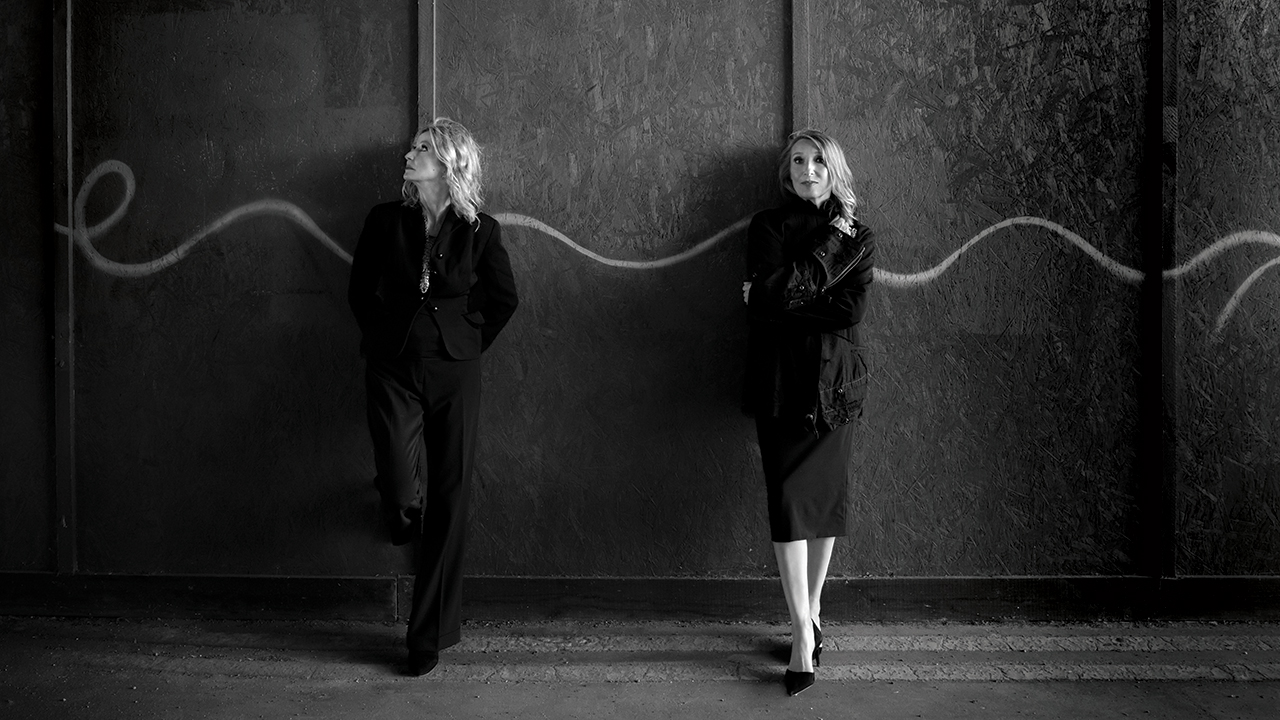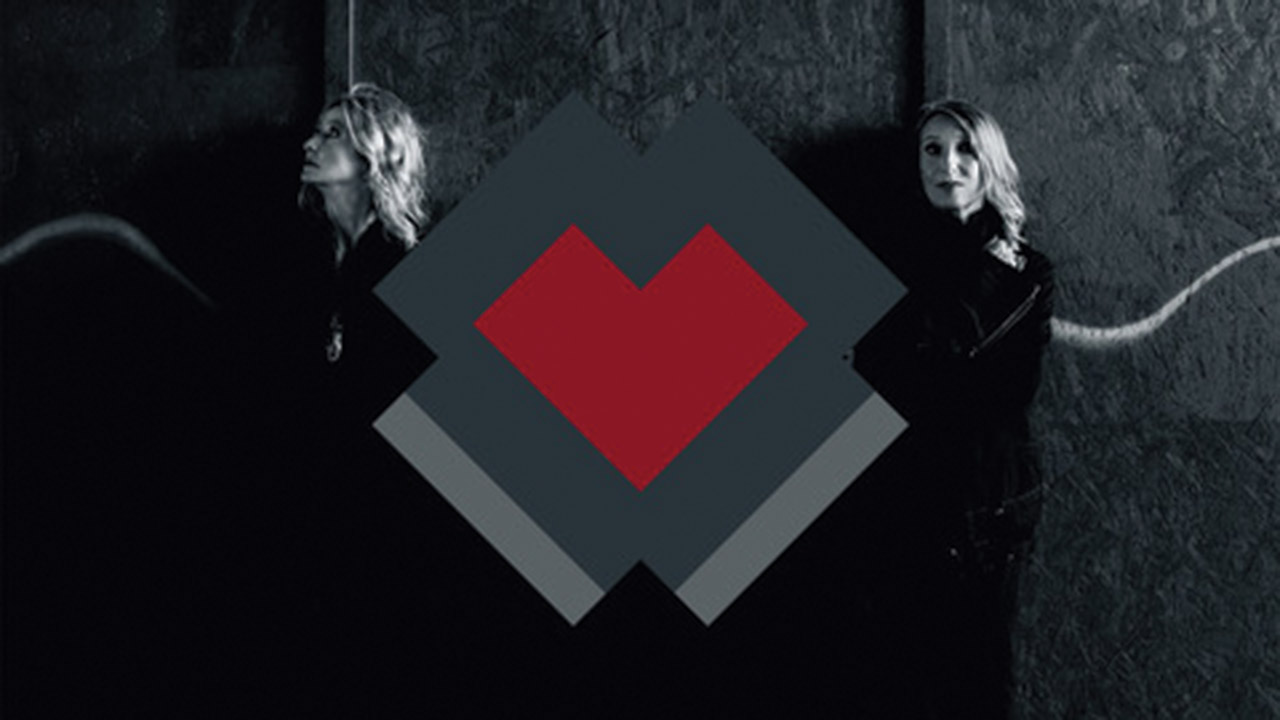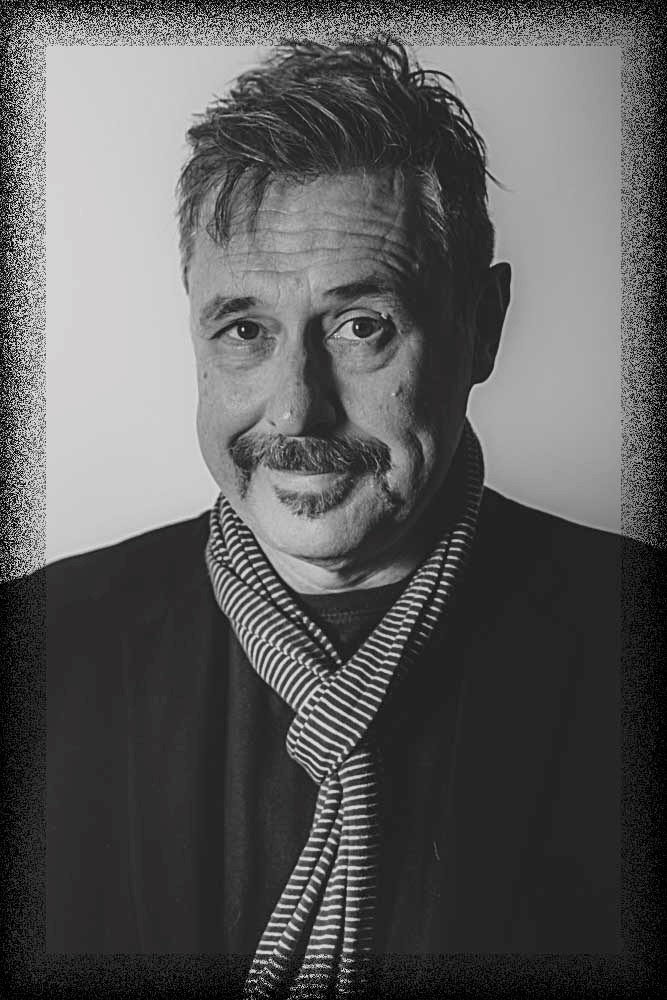In March 2018, Claudia Brücken and Susanne Freytag reunited at The Garage in Islington, where they performed Propaganda’s 1985 classic, A Secret Wish, in its entirety. It was a move as welcome as it was unexpected. The response, across both sell-out nights, was overwhelming. And inspiring. So much so, in fact, that Brücken and Freytag decided to throw themselves into a new project.
Together with producer Stephen Lipson, who oversaw A Secret Wish back in the day, they’ve now reconvened as xPropaganda, a full 35 years since the band’s initial split. “When Susanne and I finally managed to pull off the gig in 2018, it was just so tremendously enjoyable,” explains Brücken. “But we quickly realised that we needed more music for our live shows. To begin with, we were thinking of doing only four songs or so, then while we were writing we just said, ‘Why don’t we do a full album?’”

The upshot is the exceptional The Heart Is Strange, a long-overdue companion to A Secret Wish (1990’s 1234 was a Propaganda album in name only). “It really grew out of the whole writing and studio time,” says Freytag, seated beside Brücken on a video call with Prog. “We’d always tried to work on new music throughout the years, but somehow it just never happened.”
Adds Brücken: “It always felt such a shame to leave A Secret Wish on its own. And the band still had such great potential. So Propaganda has felt like unfinished business to us.”
The Heart Is Strange stands up surprisingly well to its lauded predecessor. It’s a sleek 21st-century upgrade on the Propaganda sound of their ZTT years, a rhythmic triumph of fluid precision. Chasing Utopia could be a reconditioned, funktronic Cabaret Voltaire; Don’t (You Mess With Me) rushes out like a harder-edged Kraftwerk; The Wolves Are Returning is a techno-pop masterclass.
The album is bookended by two long-form treasures. The Night feels like a broody corollary to Dream Within A Dream, the Edgar Allan Poe-rooted opener to A Secret Wish. The closing Ribbons Of Steel, meanwhile, is an experimental piece that floods the senses for nearly 10 minutes, with a nod to Pink Floyd’s The Division Bell. It’s an intense and poignant affair.
“We’d been talking about the wall in Berlin,” says Freytag, “and this story about two friends, on either side, who couldn’t get to one another. That’s how the idea developed.” Brücken expands: “For me, the ribbons of steel represent the barbed wire that was erected overnight. People suddenly had no choice, it was like this instant separation. And we had all these associations with that. It’s really embedded in our history.”
The Germany of Brücken and Freytag’s youth was bitterly divided, the Berlin Wall a pitiless symbol of Cold War segregation. Growing up further west, in Düsseldorf, unity of purpose seemed paramount. “Everybody wanted to be in a band when I was a teenager,” Brücken recalls. “It was about expressing yourself, going to rehearsal rooms at the weekends and escaping the grey boredom. It was a way of communication and also togetherness.”
Hanging out at Ratinger Straße, which backed on to the academy of arts, like-minded creatives from across the city would gather in numbers. “It was a meeting point,” says Freytag. “Later on, Kraftwerk came along and tried out their new mixes in discothèques in Cologne, nearby.” Brücken adds: “There was also DAF. We were dancing on the same dance floor and there were loads of bands there, just hanging out and looking very cool. The whole thing had an amazing energy. It was so exciting.”
This sense of inclusivity extended to the way music was consumed. “In Germany, it wasn’t so much that you were limited to one genre,” says Freytag. “You could listen to Pink Floyd and also Patti Smith or Neu!. It was all new music, whereas in England I think it was more categorised.”
Prog played a major role too. “My radar was picking up so much stuff,” says Brücken. “Tangerine Dream, King Crimson, Frank Zappa, Pink Floyd. And all that krautrock, which was also part of it, then Kraftwerk and electronic music. I also loved Supertramp. Crime Of The Century is one of my favourite records, so there were a lot of influences.”
All this diversity found its way into Propaganda. Formed as a trio in 1982 – featuring singer Freytag, visual artist Andreas Thein and Ralf Dörper of industrial rockers Die Krupps – the band expanded to a five-piece with the addition of vocalist Brücken and the classically trained Michael Mertens. Post-punk, prog, electronica, disco and avant-garde music all found room to co-exist.
Initially championed by John Peel, a copy of Propaganda’s unique reworking of Throbbing Gristle’s Discipline found its way to music journalist Paul Morley, who was then installed as ‘Minister of Information’ at Trevor Horn’s newly minted ZTT Records. Morley wanted ZTT to be more European than American, linking the label to the city of Kraftwerk and the cradle of techno. Propaganda, he said, was the ideal expression of that.
“Arriving in England and living in London was extremely exciting,” recalls Freytag. “It was also a culture shock, because understanding everyday colloquial English was really difficult. And of course, being in the studio with Stephen and Trevor Horn [co-founder of ZTT] was fantastic.”
“It was quite mind-boggling, to be honest,” laughs Brücken. “Just being invited to these amazing studios and suddenly working with these incredible musicians. We just kind of stumbled into it, really.”

A Secret Wish was trailed by two terrific hit singles: Dr Mabuse – produced by Horn – and Duel, which warranted an appearance on Top Of The Pops. Both served notice of an album that married filmic art-rock with icy motorik grooves, coated in Lipson’s hi-spec production (partly achieved using a Synclavier digital sampler).
For a heavy duty Floyd fan like Lipson, prog was a key factor too. Better known for his work with Kevin Ayers, Mike Oldfield and Roy Harper, David Bedford provided Dr Mabuse’s extraordinary string arrangement. Yes guitarist Steve Howe played the solo on The Murder Of Love. Marillion’s Ian Mosley furnished Dream Within A Dream with a drum loop.
David Sylvian, meanwhile, featured on p:Machinery. In the planning stages, there was even talk of him producing the album. “It was an early idea,” Brücken explains. “And then you kind of work out whether or not it’s possible. I think it was maybe a bit too much of a task for David, but his contribution to p:Machinery is so beautiful. You can really hear that it’s David’s language. That’s what I love about A Secret Wish. It just embraces everything, you can’t kind of pinpoint it.”
Propaganda ended unhappily, undone by a lengthy legal battle with ZTT over royalties and contracts. Cue fallouts, a handful of short-lived reunions, featuring different iterations of the band, plus various solo projects. Most recently, in 2018, Brücken furthered her prog credentials by teaming up with Jerome Froese (son of Tangerine Dream skipper Edgar) for the very fine Beginn.
But it feels as though The Heart Is Strange is the moment Brücken, Freytag and Lipson have been waiting for. “I have such fondness for A Secret Wish and that whole time,” Brücken reflects. “It was our youth, it was such an important period for us. And I think that’s what brought us together again now with Stephen. It was really weird in the studio, because it was as if time had just picked up from where we’d left it. It all felt so easy and natural.”
“I like to look at it as a continuation,” says Freytag. “Claudia and I were always quite connected, musically, so there was always a wish to do this again. And it was great to reconnect with Stephen too.”
It may still be early days, but all are in agreement that xPropaganda will last longer than The Heart Is Strange and the band’s upcoming tour dates. “I think the desire from everyone to keep it going is there,” asserts Brücken. “For us, it’s a very big thing.”
This article originally appeared in issue 130 of Prog Magazine.

